 Lost In Cheeseland
Lost In Cheeseland
On arriving in Paris, No.1 on the lengthy to-do list (in between museum visiting and restaurant testing, bien sûr) is deciphering the elision-liaison-silent-letter-filled waves of French flying from left, right and center.
Before setting foot (or even a single toe) on Parisian soil, I had already been vigorously drilled with irregular verbs and I’d skimmed the pages of iconic authors like Sartre. Bref, I was quietly confident that my carefully acquired knowledge would serve me well in my quest to be truly Parisienne. This confidence has since been shaken AND stirred more times than I can remember.
 Erica Berman
Erica Berman
Just hours into my Parisian experience, my linguistic talents would hurtle against their first obstacle of the viticultural kind. As I tried in vain to order red wine, I never imagined that my inability to distinguish the ‘u’ and the ‘ou’ in rouge would have such drastic consequences…
Following two years of linguistic battering, here’s my advice:
1.) Take risks. You’ll make mistakes (but so do the French). Living in Paris, you’ll learn to laugh at yourself. Arriving directly from a year in Spain, I’d happily use my own invented French-ised version of the Spanish verb ‘pisar’ (to trample) when I accidently stood on people. That is before I cottoned on the fact that ‘pisser’ had a very different (and far more obvious) meaning in French.
 Shutter Pea
Shutter Pea
The moral of the story? Be creative but ready to laugh – the French find it charmant!
2.) Accept criticism. Parisians set very high standards for foreigners but also for themselves (hence the popularity of dictations and clubs d’orthographe – yes, spelling clubs whose members gather to conjugate verbs). The long road to perfection is rocky and pot-holed with put downs and judgement. I have a Parisian friend who thinks that 4am in a bar is the perfect moment to correct my use of the pluperfect!
The lesson? Choose your friends carefully and toughen your skin until it has a leather-like quality.
 Erica Berman
Erica Berman
3.) Beware of the argot. It’s official, the French love their slang. When you step out into the street your trusty dictionary is powerless against this fast-flowing, contraction-ridden patois. My favourite is verlan where the syllables of a chosen word are inversed: femme becomes meuf and énervé (annoyed) becomes véner.
Recipe to successful DIY verlan: add/remove last vowel, cut in two & inverse. Only for the advanced.
To sum up, if you want to feel chez toi in Paris it’s essential to be able to chatter with the natives. It takes guts, it takes time and it takes a good dose of self-derision, but it’s well-worth it for that heart lifting, ‘c’est pas vrai, you can’t possibly be anglophone, English speakers don’t do French.’
 Lost in Cheeseland
Lost in Cheeseland
Related Links:
- Victoria’s tips on making small talk in France
- David Lebovitz talks about avoiding mistakes when ordering food
Written by Victoria Wall for the HiP Paris Blog. Looking for a fabulous vacation rental in Paris, Provence, or Tuscany? Check out Haven in Paris.
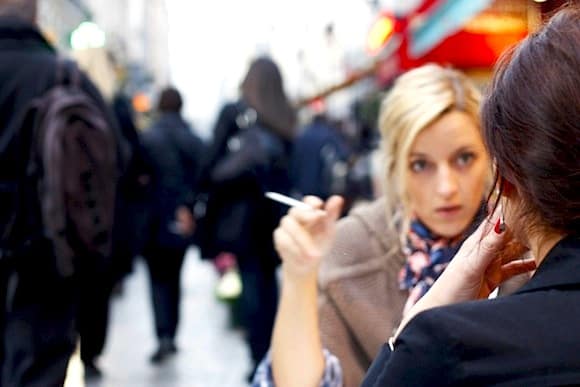
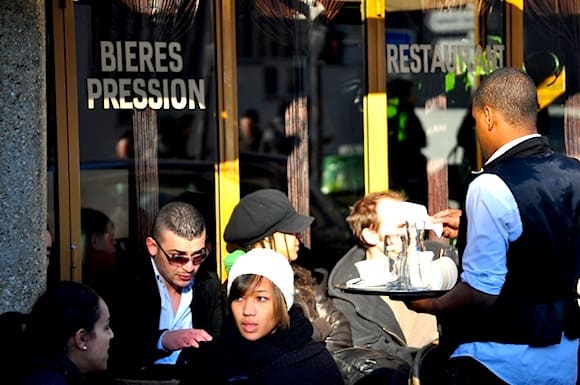
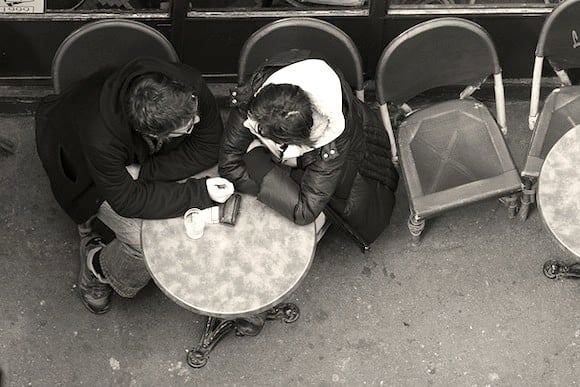
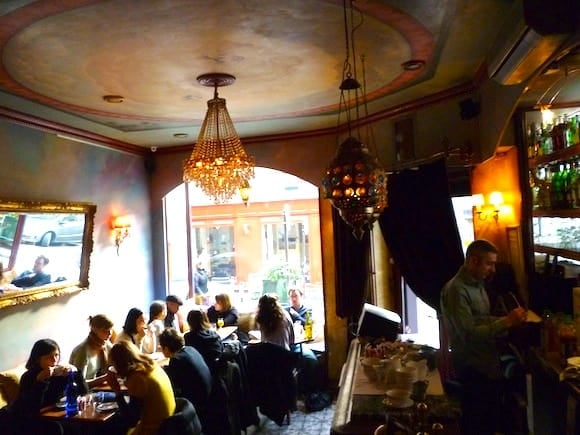
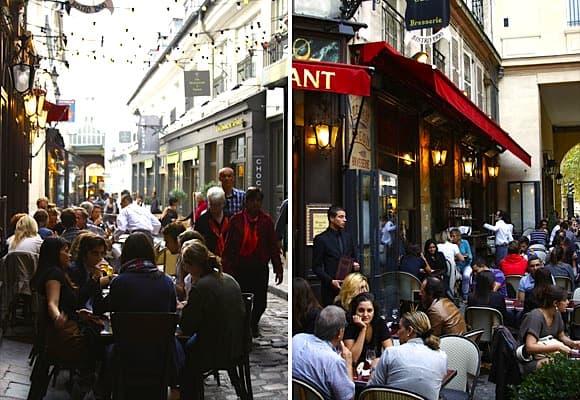


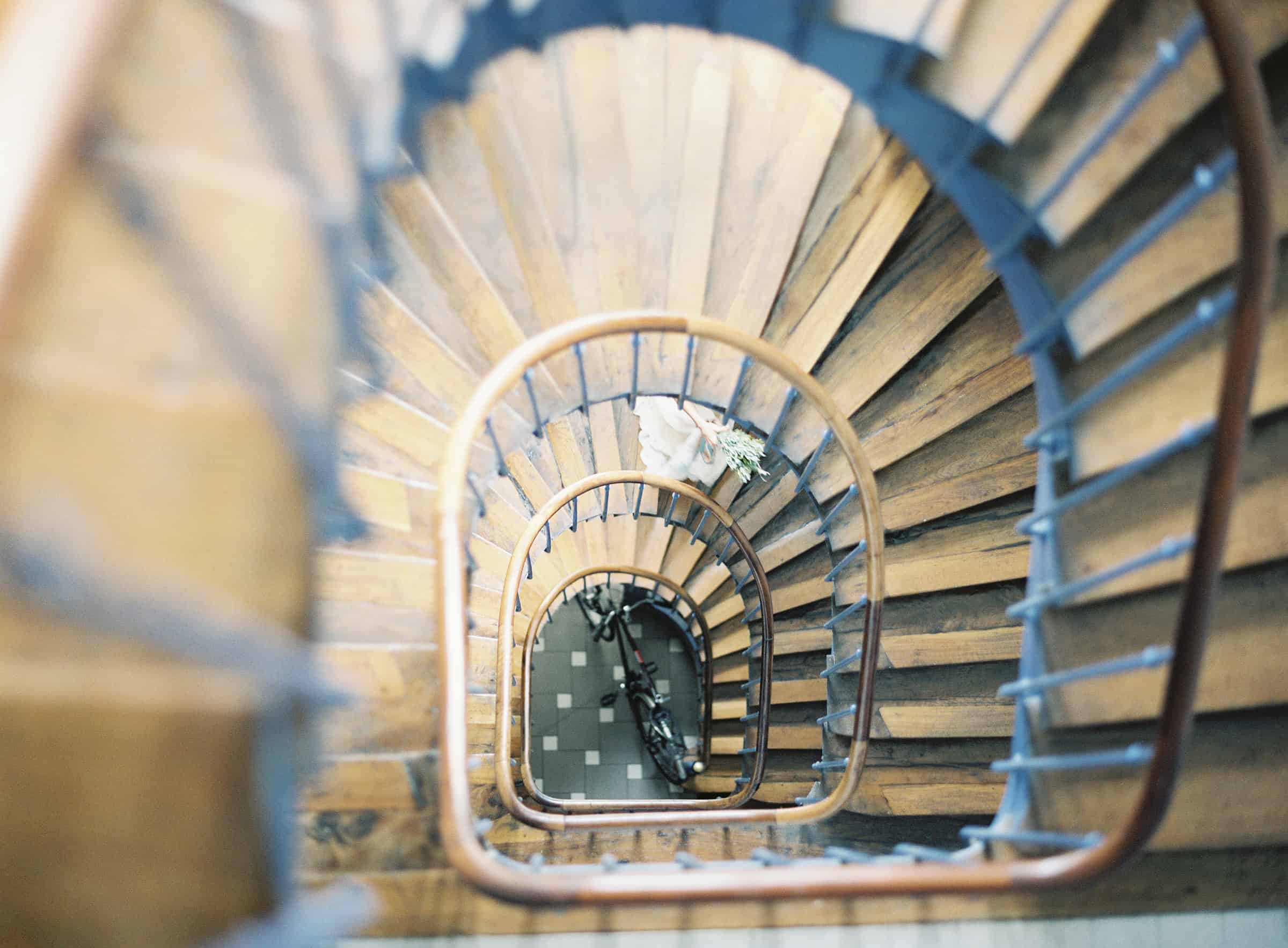









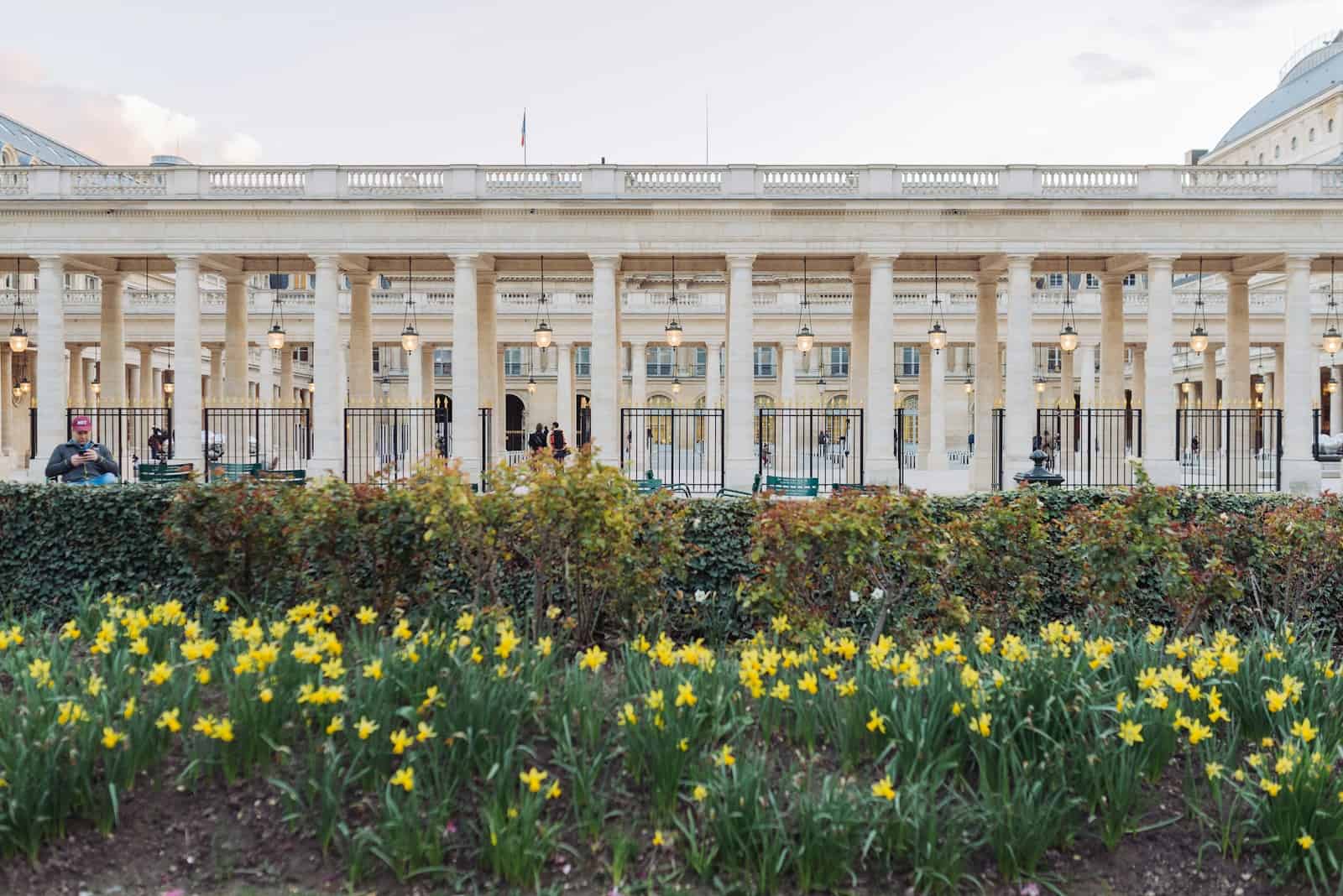
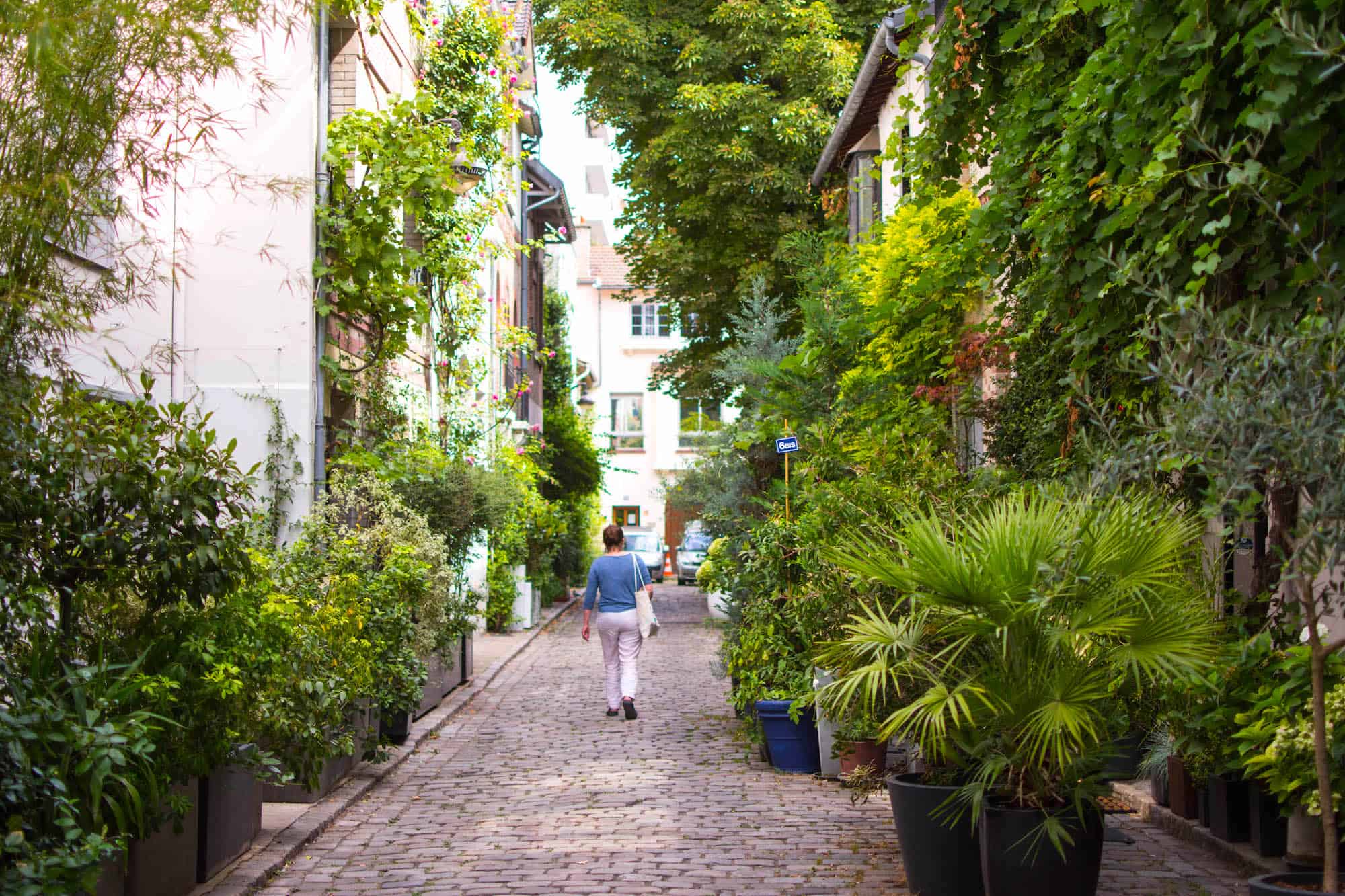





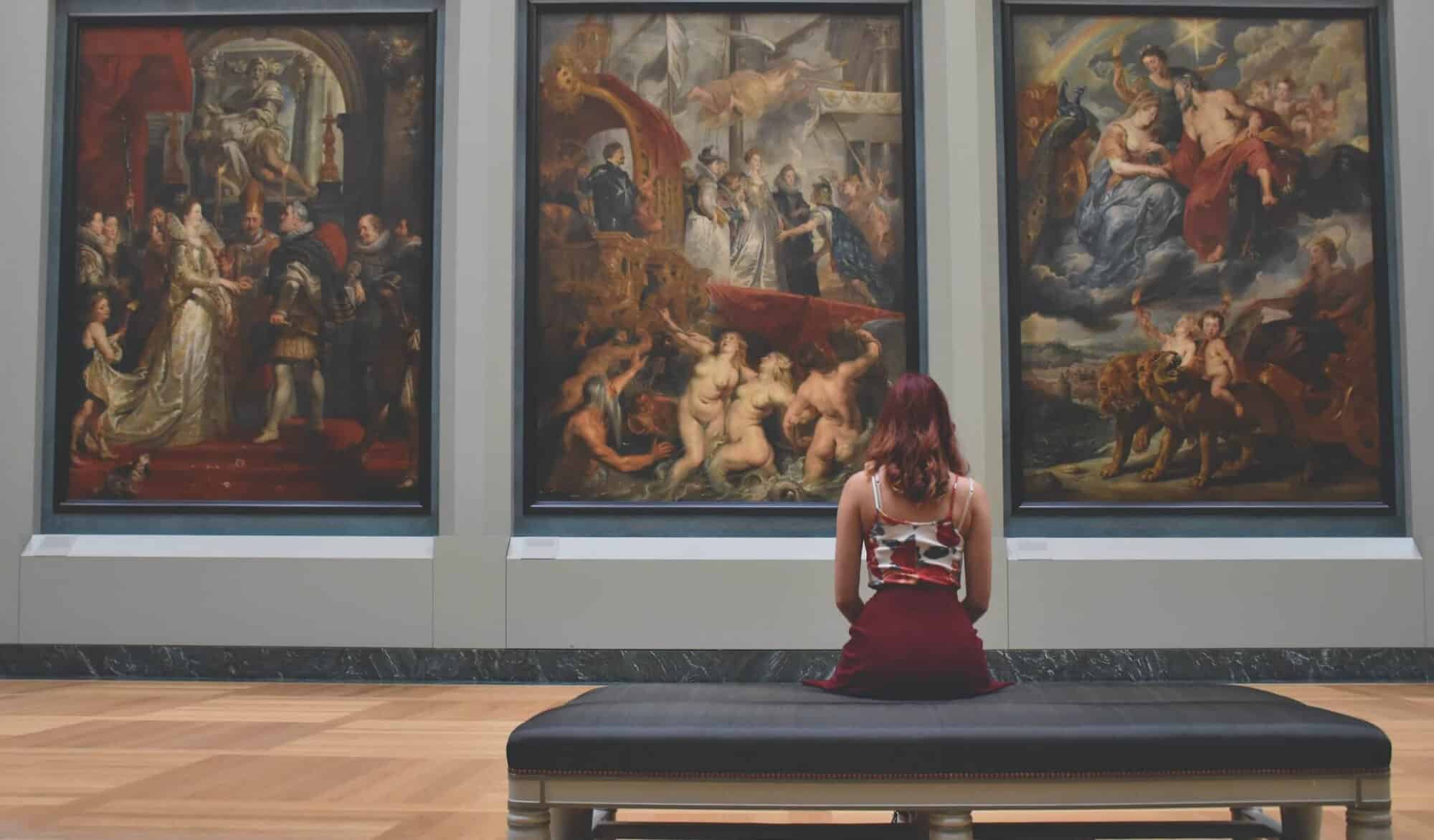

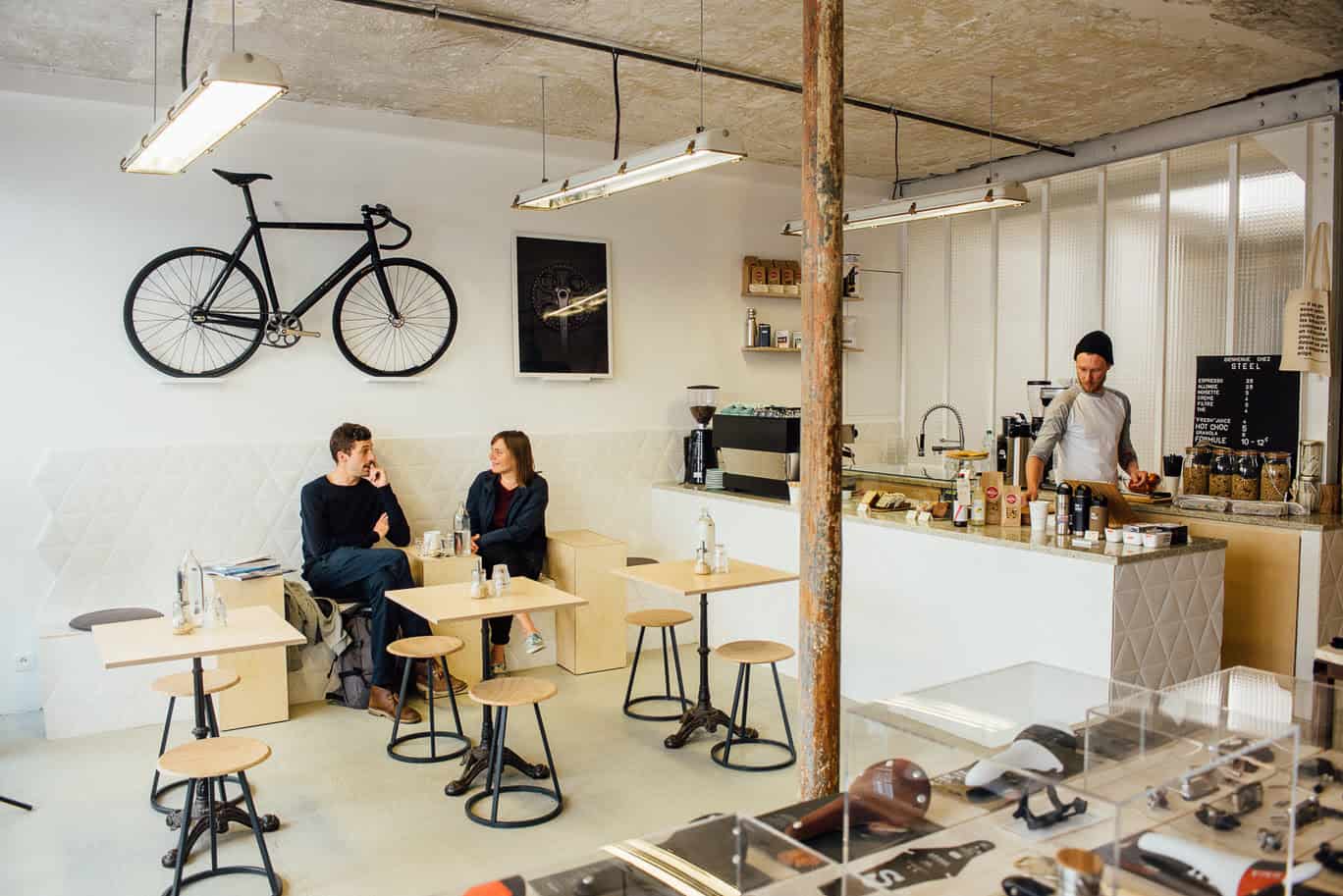

You’ve certainly got my attention! Sometimes it’s so discouraging that I’m not sure it’s the trouble to bother speaking French in Paris – as soon as I get the ‘bon’ out before the ‘jour’ most Paris store owners and servers switch into English!
Quelle horreur!
It is all very intimidating, and it takes a lot of guts to speak when you are not fluent, or do not know the slang. I will continue to be brave!
I find Verlan particularly interesting because of it uses the schwa more than traditional french! Meuf, keuf, etc. Good article! 🙂
An A for effort to anyone who braves this!! In any country where your language is not the mother tongue!
xoxo
Karena
Art by Karena
This is so true. I arrived in Paris my senior year of college SO worried about speaking anything other than textbook perfect French, but I realized just like you said that it was more about the sort of on-the-fly conversation. People appreciated my effort and we figured it out. I approached speaking in classes so much better when I got back! I can’t wait to go back next month and keep working on my “natural” French 🙂
A smile goes far.
It’s funny, the French even critique young French children. I understand it’s necessary to teach them and help them correct errors, but sometimes you have to let a kid be a kid! The French do the same for child artwork – they often indicate what the child could have done better rather than simply say “bravo!” 🙂
Thanks for using my photos!